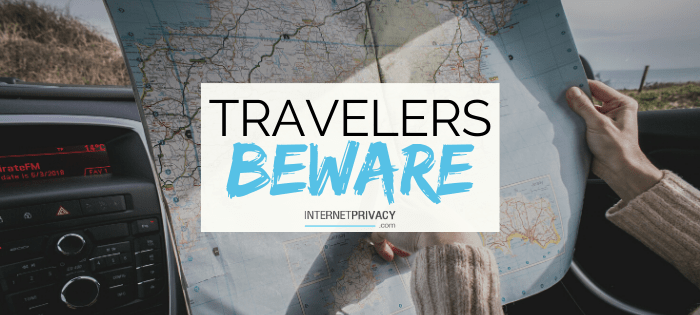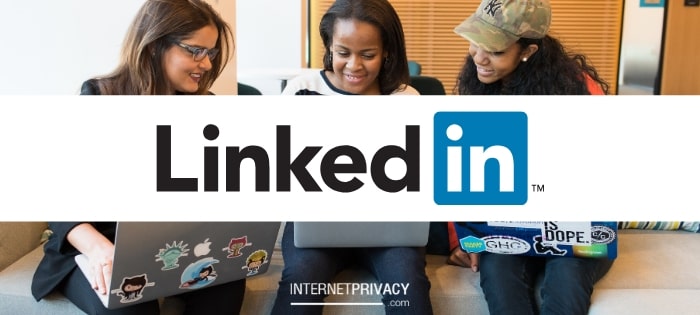How to Get Secure Internet Access While Traveling Abroad

Traveling this holiday season? Learn how to get secure internet access before hitting the road this year.
Are you traveling for the holidays? For most Americans, this time of the year can be quite stressful. Traveling, parties, get-togethers, shopping for presents, the list goes on and on. However, there should be one thing nobody should be stressing about. That is knowing if their personal data is at risk.
Most individuals would never give this a thought as they assume their personal and private information “safe and secure” online. When the truth is, the world is full of unsecured networks just waiting for unknowing internet-users to access.
Once users connect to unsecured networks, all of their files on their computers, smartphone, and laptops are exposed. WiFi is thought of as a convenience here in the States, however when traveling abroad please keep in mind that not everybody has your best interest in mind and has no problem stealing your private information.
Approximately 24.7% of Wi-Fi hotspots in the world do not use any encryption at all.
How to Get Secure Internet Access When Using…
Public Wi-Fi
Chances are you’ll search for a Wi-Fi hotspot not long after you arrive at your destination. They’re everywhere these days, in hotels, airports, and cafés. Plus these locations are also a great place to connect with others. However, you should beware. When accessing an unsecured public Wi-Fi, let’s say at a local coffee shop in your town. You are allowing the owners of that network to observe your every click and even browse your files.
- It is always important that you ask the barista or manager what the name of their WiFi network is called. Scammers will create false networks, and if you opt for the wrong one, you might end up in a bad place very fast. Starbucks WiFi-1 and Starbucks WiFi-2 may seem identical as network sources to your average person. This an attempt to siphon users off a locked and secure network onto their “free” one. This can be extremely effective, customers tend to think one network is for the company and employees and the “free” network is for its customers.
- Use the network login key/password offered to you by the business. If you have to, make sure the website you connect with is an https:// site: the ‘s’, means secure and is essential for knowing whether or not a website is considered safe. This is opposed to an http:// website, when a website lacks the ‘s’ after http it is a quick indicator you should not visit that site.
- Specific for your tablet, use one of your own browsers like Safari or Firefox when visiting a business site. Use a popularly used app instead of a browser that they recommend. This is an easy way for those businesses to track what exactly you searched for online, letter by letter, click by click.
- VPNs claim to encrypt your sent data so offenders can’t see it. You are able to search for VPNs on the internet to discover a product that meets your preferences and budget. The average monthly fee to use a VPN tool is roughly $3.
Smartphones
The device that’s changed our lives so dramatically seems like the perfect travel companion. But owners beware.
- Turn off the Bluetooth feature on your phone unless you’re using it. Otherwise, thieves may have the ability to link to the telephone and collect your data.
- Do not show off the telephone in public places; keep it near your body. It could seem everybody has a Smartphone here in the United States, but it is not accurate in poorer regions of the world, where owning a device can be considered more valuable than having bars of golden under the mattress.
- Switch off the geo-tagging works within the phone. Why give neighborhood, at-home thieves info in your out-of-town location every time you find a travel photo online?
- Make certain to use a password or PIN to access your phone, and empower your inner settings so you can remotely erase your personal data in the event the phone is stolen. Cell carriers and a few apps supply this support.
Laptops
Though less common these days with the proliferation of smaller devices, laptops still take many of the same warnings for consumers as Smartphones and tablets. The Federal Trade Commission also urges:
- Keep a close watch on laptops, especially in the commotion that occurs while traveling through airport security during peak flying times.
- Store the laptop on your area’s safe, if it’s one.
- If that’s not feasible, attach your notebook to a safety cable into your area, and consider hanging the”do not disturb” sign outside your door.
- Consider carrying the laptop in a non-computer case, like a backpack or cushioned briefcase.
- Ultimately, I discovered my passport in Chile has been permitted to depart the country. But these days, protecting against identity theft involves a lot more than protecting your passport in a belt purse hidden under your jacket.
Want to know how to get secure internet access while traveling? Observing a few of these measures should help.
Internet Privacy helps you protect your private info and online privacy at all times. Learn more by calling 866-349-0130.





